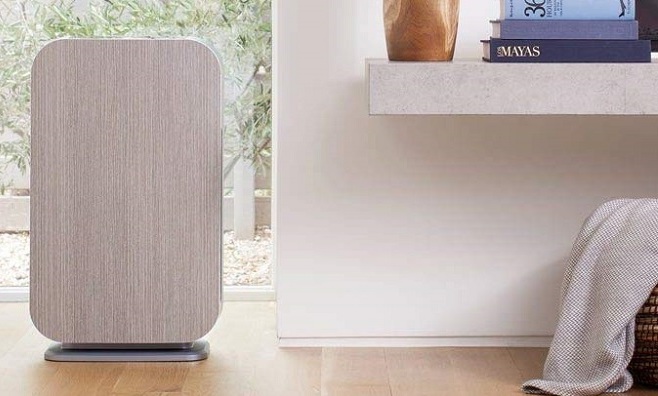In previous guides, we’ve discussed how today’s smart air purifiers work and what specs to look at when getting the right size for your room or house — like CADR, or Clean Air Delivery Rate. But air purifiers can only cycle through a room’s air when they are turned on … which leads us to another important question: Just how long should you run your air purifier? Can you run it for too long? Don’t worry, we have all the answers.
- How long should I run my air purifier?
- Do air purifier settings make a difference when running it?
- Is it safe to run an air purifier all the time?
- Can I sleep with an air purifier on?
- How long should you run an air purifier per day?
- How long does it take for an air purifier to clean a room?
- Can I set a timer for my air purifier?
- Do smart air purifiers know when the air is clean?
- What does a MERV rating mean?
How long should I run my air purifier?
The air quality inside your home is always changing, and the impact of your air purifier will depend on its size — especially whether you want to clear up a single room or the whole house. In general, you can run an air purifier for a few hours a day and expect it to give the air in its space a thorough cleaning. If you’re only looking at one smaller room, half an hour to an hour can have the same result. That schedule can give you all the benefits that an air purifier offers without requiring it to be on all the time — but you’ll want to run it at least once a day for best effect.

Do air purifier settings make a difference when running it?
They do. Most air purifiers have several fan settings that affect how quickly they push air through, in exchange for using more power and making more noise. If you only have a few hours a day to clean the air in your home and would prefer not to leave the purifier on when you are away, turn it to its maximum setting and let it run. Just note that max settings on most air purifiers will be too loud to hold a meeting in the same room.
Is it safe to run an air purifier all the time?
Yes. Air purifiers are generally designed to be run all the time if you prefer to. You can put the purifier on its lowest setting to diminish noise and let it run throughout the day.
This 24/7 approach will use more a bit more power, and you may need to clean or replace air filters more frequently. Today’s smart purifiers are good at letting you know when it’s time to replace their filters.
Can I sleep with an air purifier on?
There’s nothing wrong with doing so, but you’ll want to pay attention to noise levels and any LED lights that may be distracting. The best air purifiers are quiet, usually not any louder than running the AC or heat in your home, so noise isn’t normally a problem.

How long should you run an air purifier per day?
A few hours on the highest setting or up to 12 hours a day if you prefer to keep the unit turned off during the night.
How long does it take for an air purifier to clean a room?
That depends entirely on the size of the room and how powerful the air conditioner is. This is why air purifiers are typically rated either in terms of square feet of a room (which typically assumes an 8-foot ceiling) or with stats like CADR numbers, where the higher the CADR, the more effective the purifier. CADR is common because the rating balances the airflow through the filters and the efficiency of the model and takes both into account.
All that being said, air purifiers will generally need at least a few hours to thoroughly clean an average-sized room.
Can I set a timer for my air purifier?
Yes, many of today’s air purifiers allow you to set timers to turn on and off at certain times of day. That can save a lot of time when you are planning on when to use your purifier. In many cases, you can set it to run when you’re away and return home to cleaner air.
Do smart air purifiers know when the air is clean?
Many air purifiers do. Some of the best smart air purifiers monitor air quality and display quality readings either on the purifier itself or via a connected app. That allows for much closer monitoring, and you can see how an air purifier affects the air quality and get hard numbers on how long to run a purifier in your specific space.
What does a MERV rating mean?
This refers to Minimum Efficiency Reporting Value, a rating that describes an air filter’s ability to trap particle sizes. The higher the MERV, the smaller the particles the filter can trap, which is great for air quality — but that also means that higher MERV filters generally take longer to fully cycle through a room’s air.
In general, an air purifier can capture particles as small as 0.03 microns (also known as nanometers). This is about the size of smoke particles or pet dander; however, many modern purifiers are able to capture particles as small as 0.01 microns, or roughly the size of most bacteria.




